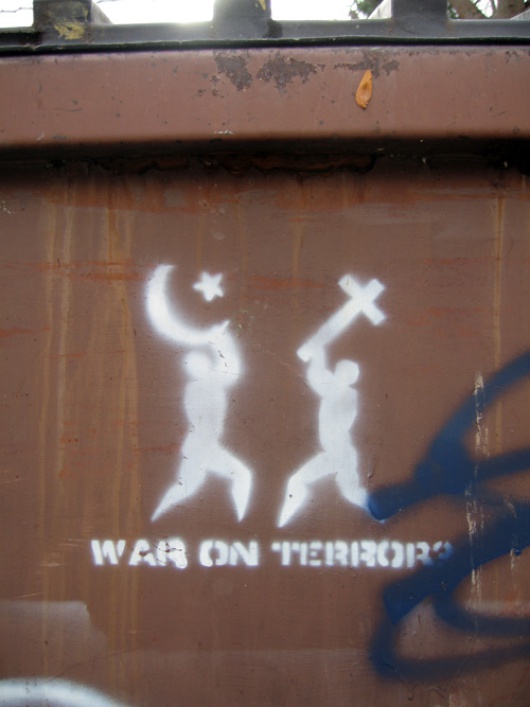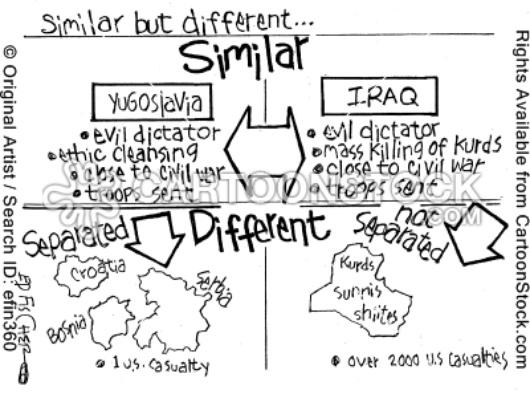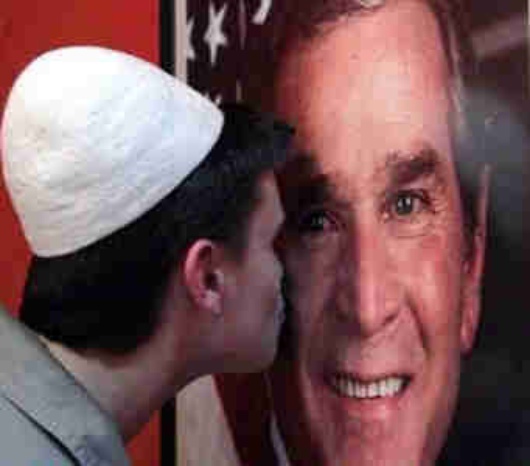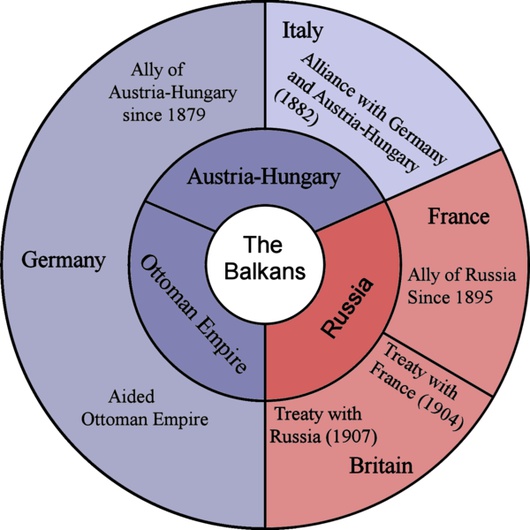What’s up in West-Balkans 2009
Published on
This post was first published in TH!NK ABOUT IT site 9th February 2009. A lot of interesting marches of progress will take or not take place in West Balkans during 2009. I try to keep my finger on the pulse of developments at least in Bosnia, Croatia and Serbia (including Kosovo) where the most interesting events will occur, I suppose.
The today’s topics are mostly related to historical past of the region, its different approaches towards EU, its role as playground of international politics and its various domestic tensions. Here I shortly describe few of these issues and their background.
Bosnia-Herzegovina
Last year top level European politicians have awaken to reality concerning the state of Bosnia-Herzegovina, namely that this artificial creature made by Dayton agreement is starting to collapse. This in spite of hundreds of millions of euros which e.g. EU has thrown away to build some kind of multi-ethnical ideal.
Dayton Agreement was made 1995 after bloody war (1992-95) had almost finished ethnic cleansings/transfer of populations so that it was possible to draw administrative boundaries according ethnic groups. The agreement split Bosnia into two semi-independent entities – the Serb Republic and the Muslim-Croat Federation and three ethnic groups – Croats, Serbs and Bosniaks – are trying to lead state together and separately. Entities are united by weak central institutions, administration is quite heavy loaded with some 170 ministers and whole system is supervised by international presence.
On June 16th 2008 Bosnia-Herzegovina made a significant step forward with EU by signing a key pre-membership deal called the Stabilisation and Association Agreement. The deal was a sign that progress can be achieved and crises overcome, when the political will exists. However, this consensus has since collapsed and reforms halted, nationalist rhetoric ahead of the October 2008 local elections was a factor in this deterioration. 5th November 2008 EU Commission published its “Progress report” about the road of western Balkan countries towards European integration/enlargement and was not very favorable to Bosnia-Herzegovina.
The recent past of Bosnia-Herzegovina is violent and there was not only one brutal side – there was three of them. This past has its impact today and real truth behind successful propaganda about events of war 1992-95 is still unclear. This year I expect that the trial of war crime suspect Radovan Karadzic will clarify a bit of this bloody past when both prosecutor and defense are making their case.
The developments last year showed that it is not anymore dispute between Serbs and Bosniaks, there was also serious dissension between Bosniaks and Croats which may be related to rise of radical Islam in Balkans. Lack of national identity and multi-ethnic ideals and dispute between ethnic groups are main reason for possible collapse of Bosnia-Herzegovina. Can any country survive without some minimal mutual self-identification across its citizens as a whole? If the shared non-ethnic Bosnian identity is taking steps backwards does this not mean that this artificial western desk-drawer plan is doomed to fail? I am afraid so but maybe it is loss only for those top level designers not for local population.
Croatia
Croatia is now badly lagging behind its northern Slovene neighbour due to massive political corruption. The official aim is to lead country into the European Union by 2011. Instead Croatia is transforming itself into a mafia state; ruling Croatian Democratic Union (HDZ) have presided over a creeping authoritarian kleptocracy, bribery, kickbacks and cronyism are ubiquitous. Protesters took to the streets in December demanding early elections.
 Government is also cracking down on the independent media. The regime controls state television and radio, suppressing dissent - especially, any investigations into high-level HDZ corruption - and also recently some journalists have been killed and physically assaulted.
Government is also cracking down on the independent media. The regime controls state television and radio, suppressing dissent - especially, any investigations into high-level HDZ corruption - and also recently some journalists have been killed and physically assaulted.
One very alarming trend is (over)emphasizing Croatia’s Nazi past. During WWII Croatia was created and supported by Nazi Germany and Fascist Italy. It thus adopted their racial and political doctrines as well practices. Jasenovac was Croatia’s largest concentration and extermination camp. From total 600,000 murdered ones some 25,000 were Gypsies, some 25,000 Jews and over half a million Serbs. From time to time some symptoms of this past are occurring also today ad even with support of government (More e.g. in my article “Nazi’s funeral shadows Croatians past” )
Serbia
On Spring 2008 Serbia signed two strategic agreement. The one was a Stabilization and Association Agreement (SAA) with European Union and the second one was a preliminary energy deal with Russia. The first is since then suspended by Netherlands due the lack of arresting war crime fugitive Gen. Mladic but the second one got some flesh on the bones on Xmas-week when Serbia and Russia finalized the deal. Both deals are implementing Serbia’s European perspective although from different angels.
Serbia however started to implement SAA unilaterally, but the progress could have been better. According to the latest report from the European Integration Office adopted by the government, the ineffective work of the national parliament has meant that only a third of the laws in the European packet have been adopted, while the government has accomplished two-thirds of the necessary work.
Same time anti-European feeling is growing in Serbia and e.g. for the first time in a long time polls are showing that the number of those against cooperation with the Tribunal is on the rise again. While Serbia is not closing the door to the EU it is parallel with the idea of a European prospective searching a couple of other alternatives. Serbia’s FM Vuk Jeremić recently said that "At this point we have closer ties with Russia than with the U.S., since there is not a single open issue between us and Russia, while there is disagreement with Washington when it comes to the future status of Kosovo and Metohija." (Source B 92 Feb. 8th 2009)
The bloody past will again be on table during 2009 when genocides and ethnic cleansing during 1990s Balkan Wars is going on tables of international courtrooms. Croatia made lawsuit against Serbia and Serbia’s countersuit will be heard in Haague. (More in my article “Croatia’s and Serbia’s ‘Genocide’ Case to Proceed”)
 Kosovo province
Kosovo province
The UN General Assembly is backing Serbia’s draft to request an advisory opinion of the International Court of Justice (ICJ) about the legality of the unilaterally declared independence (Feb. 2009) of Kosovo. October 8th UNGA, by a recorded vote of 77 in favor to 6 against (Albania, Marshall Islands, Federated States of Micronesia, Nauru, Palau, United States), with 74 abstentions, adopted a resolution drafted by Serbia.
The Kosovo case is dividing international community – less than 60 countries have recognized Kosovo’s independence and 130 not – as well EU. EU started its huge rule & law mission late 2008 under UN umbrella. Besides UN/UNMIK and EU/EULEX there is also other players twisting arms who is leading the international protectorate. There is European Union High Representative who simultaneously leads International Community Office wondering his role, same time Nato-troops (KFOR) tries to keep ethnic tensions moderate, OSCE do not know its role nor length of its mission’s mandate in Kosovo, EU delegation office, few influential foreign liaison representatives and of course sc. Kosovo government based to local tribes.
It shows amazing creativity to establish this kind organizational nightmare in one tiny province and more amazing is that after nearly nine years of international administration and capacity building and squandered billions of Euros both the administration and the situation on the ground are beneath all criticism.
So in many levels Kosovo is some kind of test laboratory but its effect does not remain inside the borders of province. As hub of famous Balkan route Kosovo Albanian mafia is distributing majority of heroin sold in western and centre Europe and is now also testing cooperation with Columbian cartels to start distribution more cocaine as well. Earlier (Kosovo) Albanian mafia based its logistics to help of al-Qaida because the heroin is coming from Afghanistan.
The rest of W-Balkans
At present I do not have anything special in mind about special issues in rest of West Balkans. All countries have their more or less problems with organized crime, corruption and managing reflections of global financial crisis. One curiosity related to finances in West Balkans is that outside official euro-zone Montenegro and Kosovo province are already using Euro as their currency.
In Albania elections will be held in June 2009. At the end of November 2008 the Democratic Party (PD) and the Socialist Party (PS) agreed on amendments to the election law. In late 2008 Albanian parliament passed the law on lustration without the participation of the opposition, which was strongly condemned by the international community. Small parties have accused the Democratic Party and the Socialist Party of planning an election fraud Analysts have pointed to the possibility that the Democratic Party may prepare an election fraud at the forthcoming elections in Albania. At the last elections (2005) the election fraud planned by the Socialist Party was prevented. We shall see if and by who the next fraud is implemented.
Related to EU enlargement (FYR) Macedonia is trying to develop its modest performance. The name dispute with Greece will probably also be solved. In interior policy ethnic tensions between Albanians and Macedonians are bubbling under today’s stability and eruptions are possible.
Slovenia and Croatia have also small border dispute which solution should not create any problems. Slovenia will be the pioneer and enviable example for the rest of Balkans. One small detail to follow up in Slovenia is the claim if a Finnish arms factory Patria bribed previous Slovenian government to order their armed vehicles. It is ironical if the state-owned firm of Worlds most anti-corrupted state is bribing the top pupil of EU.
What ever – interesting year has again started in Balkans and what really happens will be seen.
 This graph below shows the relations between the European nations in the Balkans before WWI; now new great powers - EU, Nato, Russia - are again making new alliances.
This graph below shows the relations between the European nations in the Balkans before WWI; now new great powers - EU, Nato, Russia - are again making new alliances.



